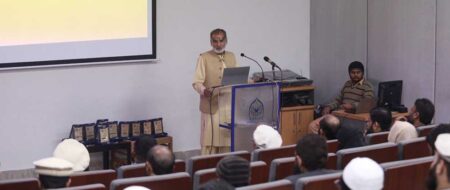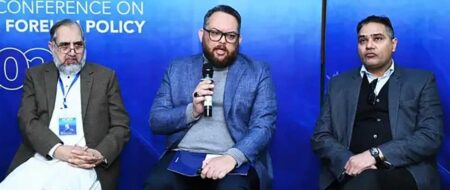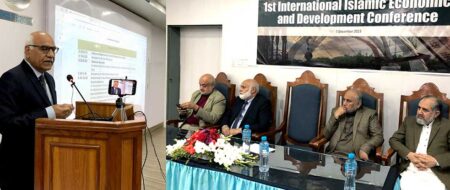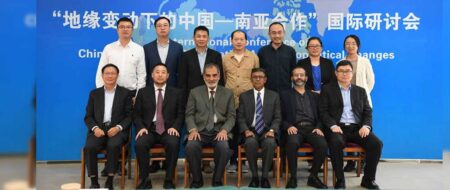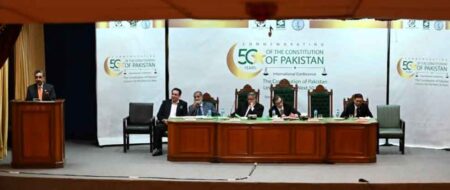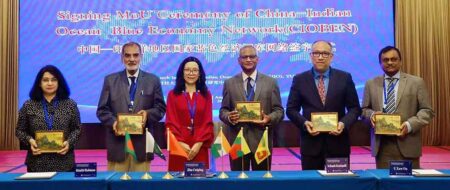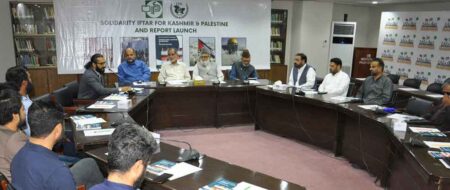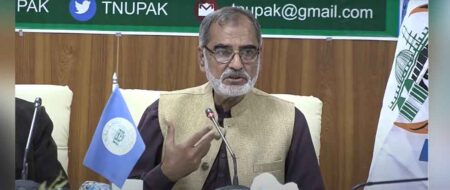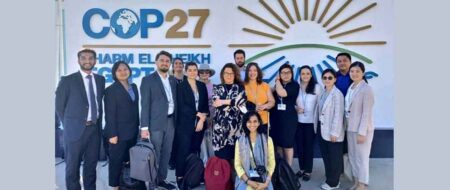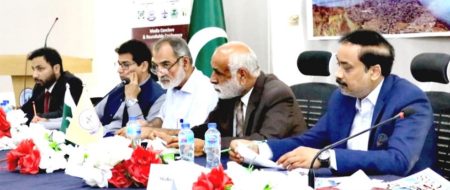Pakistan Economy: An Assessment with Special Reference to Quality of Life
To assess the economic growth in terms of improving the quality of life, a one-day conference, comprising of three sessions, was held on December 18, 2007. Dr. Ishrat Hussain, Chairman, National Commission for Governance Reforms, was the Chief Guest and Prof. Khurshid Ahmad; Chairman IPS, Prof. Dr. Syed Nawab Haider Naqvi; HEC Distinguished Professor and Director General, Federal Urdu University and Dr. Rafiq Ahmad, former Vice Chancellor, Punjab University, chaired the three sessions respectively.

Activity:
Speakers:Chair:
Mr. Fasih Uddin mentioned ‘competence and commitment’ as the two key inter-related elements of human resource development, without which the quality and access would remain weak and fragile.
Dr. Arif, while speaking on ‘Poverty Eradication Strategy How far Successful?,’ maintained that high growth rate in recent years had led to inequality in income and social well-being. He expressed the view that sustained economic growth would lead to reduction in both unemployment and poverty and that current demographic transition could also be used for accelerating growth.
Speaking on ‘Financial Sector and Quality of Life with Focus on Banking,’ Dr. Shahid Hasan Siddiqui highlighted the adverse impact of financial sector reforms and policies, particularly the persisting gap between high cost of lending and low rate of return given by banks; and limited availability of bank credit for small business and land holders. Concluding the second session, Dr. Nawab Haidar Naqvi maintained that Pakistan had failed to convert recent economic growth in improving the quality of life of the people; and that changes were essential both in respect of the economy and social sectors.
 The last session was chaired by Dr. Rafiq Ahmad with Dr. Ishrat Hussain as the chief guest. Talking on ‘Employment and Human Resource Development,’ Dr. Sabur Ghayur opined that centrality of employment and poverty was crucial for development. For this purpose, he laid emphasis on effective coordinated mechanism for the implementation of the Policy.
The last session was chaired by Dr. Rafiq Ahmad with Dr. Ishrat Hussain as the chief guest. Talking on ‘Employment and Human Resource Development,’ Dr. Sabur Ghayur opined that centrality of employment and poverty was crucial for development. For this purpose, he laid emphasis on effective coordinated mechanism for the implementation of the Policy.Mr. Fateh M. Chaudhary talked on ‘Socioeconomic, Water, Energy and Environment Challenges’ and expressed that quality of life “should remain a passion with us in each and every forum on economic and social development otherwise we will totally disappoint the voiceless millions.”
Engr. Mazharul Islam’s paper ‘Reforming the Contracts System in the Context of Quality of Life’ maintained that non-transparent contract system in public sector infrastructure project was contributing in non-realization of objectives, deficient quality, misappropriation, corruption and other evils.
 Dr. Rafiq Ahmad, in his concluding remarks, stressed on the need to focus on raising the quality of life of the poor; effective implementation of plans of social and economic development; dominant role of state in governance and laying solid socio-economic infrastructure; empowerment of people; land reforms; and bringing honest people in power.
Dr. Rafiq Ahmad, in his concluding remarks, stressed on the need to focus on raising the quality of life of the poor; effective implementation of plans of social and economic development; dominant role of state in governance and laying solid socio-economic infrastructure; empowerment of people; land reforms; and bringing honest people in power.The Chief Guest, Dr. Ishrat Husain, highlighted the positive elements of growth of recent years and dilated on the trade-offs that had to be considered in policy making, such as between inflation and growth and unemployment, and public investment and budget deficit. He emphasized the role of education, training and skill development in economic and social development and suggested that the development strategy should be based on promoting market mechanism, private property, good governance, strong institutions, along with effective mechanisms to look after the poor.


